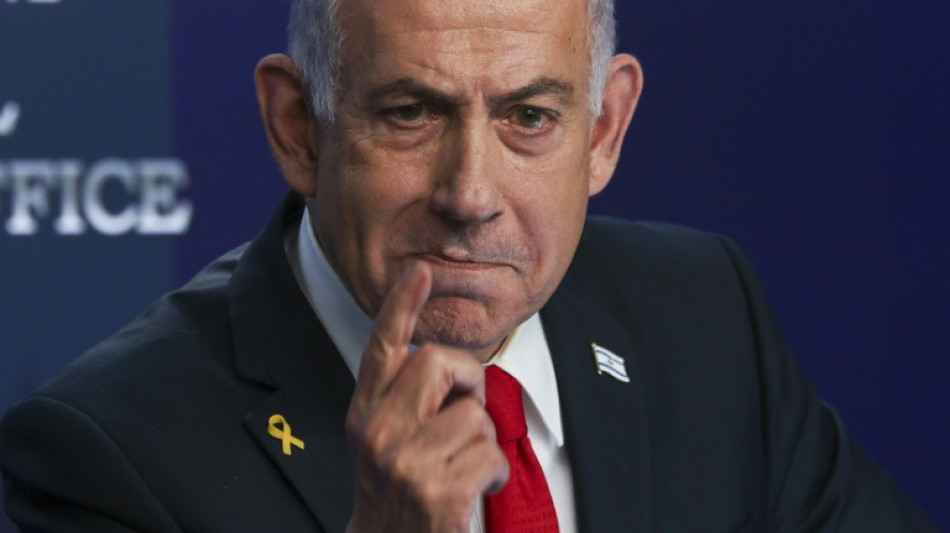
-
 Canada's Patrick Watson channels dread into new 'Uh Oh' album
Canada's Patrick Watson channels dread into new 'Uh Oh' album
-
Trump brands indicted opponent Comey a 'dirty cop'
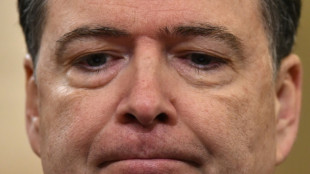
-
 Walker an all-time great, says Guardiola ahead of Man City return
Walker an all-time great, says Guardiola ahead of Man City return
-
Alonso warns against overconfidence before Madrid derby

-
 Fritz says path to Grand Slam glory goes through Alcaraz, Sinner
Fritz says path to Grand Slam glory goes through Alcaraz, Sinner
-
UK court drops terror case against Kneecap rapper

-
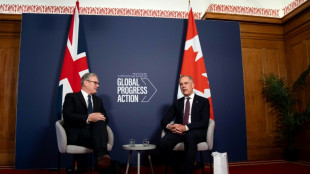 UK's Starmer urges liberals to fight 'the lies' told by far right
UK's Starmer urges liberals to fight 'the lies' told by far right
-
Bagnaia and Pennetta among first Winter Olympic torch carriers: organisers

-
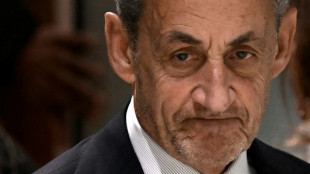 Sarkozy conviction exposes political divide in crisis-hit France
Sarkozy conviction exposes political divide in crisis-hit France
-
Ryder Cup begins in electric atmosphere at Bethpage Black
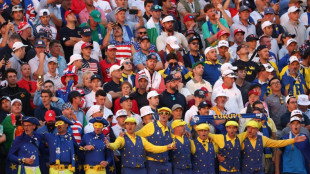
-
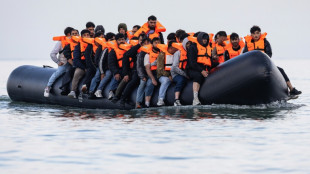 UK to launch digital ID scheme to curb illegal migration
UK to launch digital ID scheme to curb illegal migration
-
Chelsea's Palmer sidelined with groin injury

-
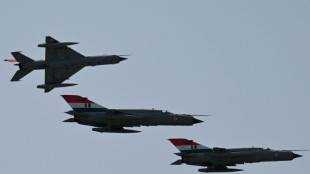 India retires Soviet fighter jet after six decades
India retires Soviet fighter jet after six decades
-
Slovak parliament approves anti-LGBTQ constitutional change

-
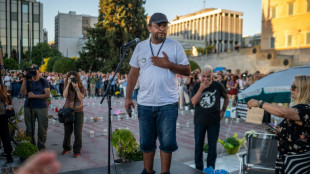 Train tragedy hunger striker captures hearts in Greece
Train tragedy hunger striker captures hearts in Greece
-
I.Coast historic beachside town boasts new modern art museum

-
 PSG captain Marquinhos out with thigh injury
PSG captain Marquinhos out with thigh injury
-
UK court drops terror charge against Kneecap rapper

-
 Turkish Airlines inks big Boeing deal after Erdogan visits US
Turkish Airlines inks big Boeing deal after Erdogan visits US
-
Liverpool's Leoni faces year out after ACL injury on debut

-
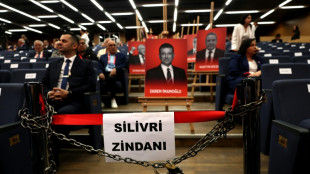 'We are not afraid,' jailed Istanbul mayor tells court
'We are not afraid,' jailed Istanbul mayor tells court
-
Canada's women tilt for World Cup thanks to 'incredible' crowdfunding

-
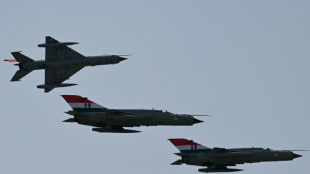 India retires 'flying coffin' Soviet fighter jet after six decades
India retires 'flying coffin' Soviet fighter jet after six decades
-
Erasmus makes late Springboks change as Nche injured

-
 Ukrainian YouTuber arrested in Japan over Fukushima livestream
Ukrainian YouTuber arrested in Japan over Fukushima livestream
-
Foreign doctors in Gaza describe worst wounds 'they've ever seen'
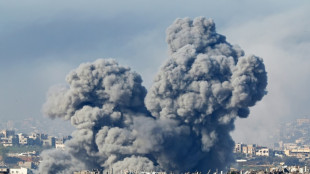
-
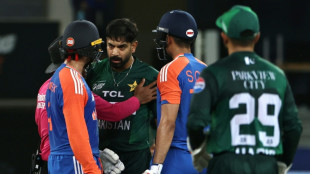 India-Pakistan to clash in first Asia Cup final
India-Pakistan to clash in first Asia Cup final
-
South Asia monsoon: climate change's dangerous impact on lifeline rains

-
 Million-year-old skull could change human evolution timeline
Million-year-old skull could change human evolution timeline
-
Gauff launches China Open title defence in style

-
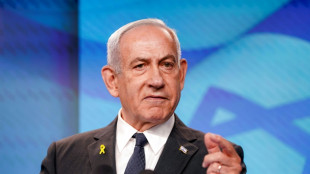 Netanyahu set for defiant UN speech as Trump warns on annexation
Netanyahu set for defiant UN speech as Trump warns on annexation
-
The world's last linen beetling mill eyes strong future

-
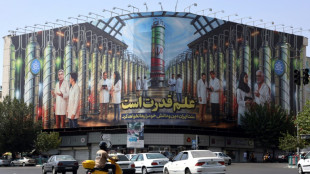 Iran sanctions look set to return after last-ditch UN vote
Iran sanctions look set to return after last-ditch UN vote
-
Poland cools on Ukrainians despite their economic success

-
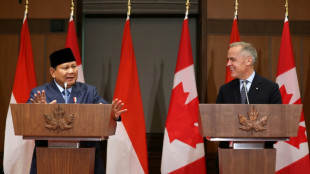 Canada signs free trade agreement with Indonesia
Canada signs free trade agreement with Indonesia
-
Danish airport closes again after suspected new drone sighting

-
 Cheap moonshine kills 11 in Colombia
Cheap moonshine kills 11 in Colombia
-
Quake-hit Myanmar city becomes epicentre of junta election offensive

-
 400,000 evacuated, 3 dead as fresh storm batters Philippines
400,000 evacuated, 3 dead as fresh storm batters Philippines
-
In India's Mumbai, the largest slum in Asia is for sale

-
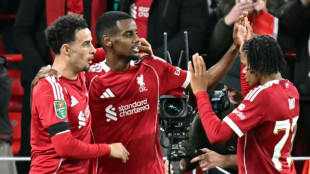 Red-hot Liverpool face Palace test as Arsenal try to keep pace
Red-hot Liverpool face Palace test as Arsenal try to keep pace
-
Israeli strikes kill 9 in Yemen's rebel-held capital: Huthis
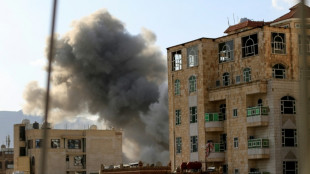
-
 Cardinals agony as Seahawks snatch victory
Cardinals agony as Seahawks snatch victory
-
Cameroon's president Biya: absent candidate in election

-
 Asian markets drop as US data, new tariff threats dent sentiment
Asian markets drop as US data, new tariff threats dent sentiment
-
Spanish great Busquets to retire after MLS season

-
 Title-chasing Marquez third-fastest in first Japan MotoGP practice
Title-chasing Marquez third-fastest in first Japan MotoGP practice
-
Wallabies primed for "pressure cooker" All Blacks Test

-
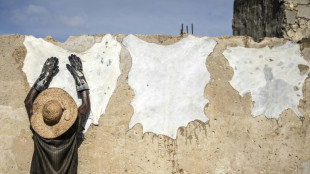 Sought by luxury labels, Nigerian leather reclaims home market
Sought by luxury labels, Nigerian leather reclaims home market
-
Heavy hand: Free-market US tested as Trump takes stakes in private companies


Iran-Israel war: a lifeline for Netanyahu?
The Iran-Israel war has helped strengthen Israeli Prime Minister Benjamin Netanyahu domestically and overseas, just as his grip on power looked vulnerable.
On the eve of launching strikes on Iran, his government looked to be on the verge of collapse, with a drive to conscript ultra-Orthodox Jews threatening to scupper his fragile coalition.
Nearly two years on from Hamas's unprecedented attack in 2023, Netanyahu was under growing domestic criticism for his handling of the war in Gaza, where dozens of hostages remain unaccounted for.
Internationally too, he was coming under pressure including from longstanding allies, who since the war with Iran began have gone back to expressing support.
Just days ago, polls were predicting Netanyahu would lose his majority if new elections were held, but now, his fortunes appear to have reversed, and Israelis are seeing in "Bibi" the man of the moment.
– 'Reshape the Middle East' –
For decades, Netanyahu has warned of the risk of a nuclear attack on Israel by Iran -- a fear shared by most Israelis.
Yonatan Freeman, a geopolitics expert at the Hebrew University of Jerusalem, said Netanyahu's argument that the pre-emptive strike on Iran was necessary draws "a lot of public support" and that the prime minister has been "greatly strengthened".
Even the opposition has rallied behind him.
"Prime Minister Benjamin Netanyahu is my political rival, but his decision to strike Iran at this moment in time is the right one," opposition leader Yair Lapid wrote in a Jerusalem Post op-ed.
A poll published Saturday by a conservative Israeli channel showed that 54 percent of respondents expressed confidence in the prime minister.
The public had had time to prepare for the possibility of an offensive against Iran, with Netanyahu repeatedly warning that Israel was fighting for its survival and had an opportunity to "reshape the Middle East."
During tit-for-tat military exchanges last year, Israel launched air raids on targets in Iran in October that are thought to have severely damaged Iranian air defences.
Israel's then-defence minister Yoav Gallant said the strikes had shifted "the balance of power" and had "weakened" Iran.
"In fact, for the past 20 months, Israelis have been thinking about this (a war with Iran)," said Denis Charbit, a political scientist at Israel's Open University.
Since Hamas's October 7, 2023 attack on Israel, Netanyahu has ordered military action in Gaza, against the Iran-backed Hezbollah group in Lebanon and the Huthis in Yemen, as well as targets in Syria where long-time leader Bashar al-Assad fell in December last year.
"Netanyahu always wants to dominate the agenda, to be the one who reshuffles the deck himself -- not the one who reacts -- and here he is clearly asserting his Churchillian side, which is, incidentally, his model," Charbit said.
"But depending on the outcome and the duration (of the war), everything could change, and Israelis might turn against Bibi and demand answers."
– Silencing critics –
For now, however, people in Israel see the conflict with Iran as a "necessary war," according to Nitzan Perelman, a researcher specialised in Israel at the National Centre for Scientific Research (CNRS) in France.
"Public opinion supports this war, just as it has supported previous ones," she added.
"It's very useful for Netanyahu because it silences criticism, both inside the country and abroad."
In the weeks ahead of the Iran strikes, international criticism of Netanyahu and Israel's military had reached unprecedented levels.
After more than 55,000 deaths in Gaza, according to the health ministry in the Hamas-run territory, and a blockade that has produced famine-like conditions there, Israel has faced growing isolation and the risk of sanctions, while Netanyahu himself is the subject of an international arrest warrant for alleged war crimes.
But on Sunday, two days into the war with Iran, the Israeli leader received a phone call from European Commission President Ursula von der Leyen, while Foreign Minister Gideon Saar has held talks with numerous counterparts.
"There's more consensus in Europe in how they see Iran, which is more equal to how Israel sees Iran," explained Freeman from the Hebrew University of Jerusalem.
German Chancellor Friedrich Merz said Tuesday that Israel was doing "the dirty work... for all of us."
The idea that a weakened Iran could lead to regional peace and the emergence of a new Middle East is appealing to the United States and some European countries, according to Freeman.
But for Perelman, "Netanyahu is exploiting the Iranian threat, as he always has."
A.Zbinden--VB
